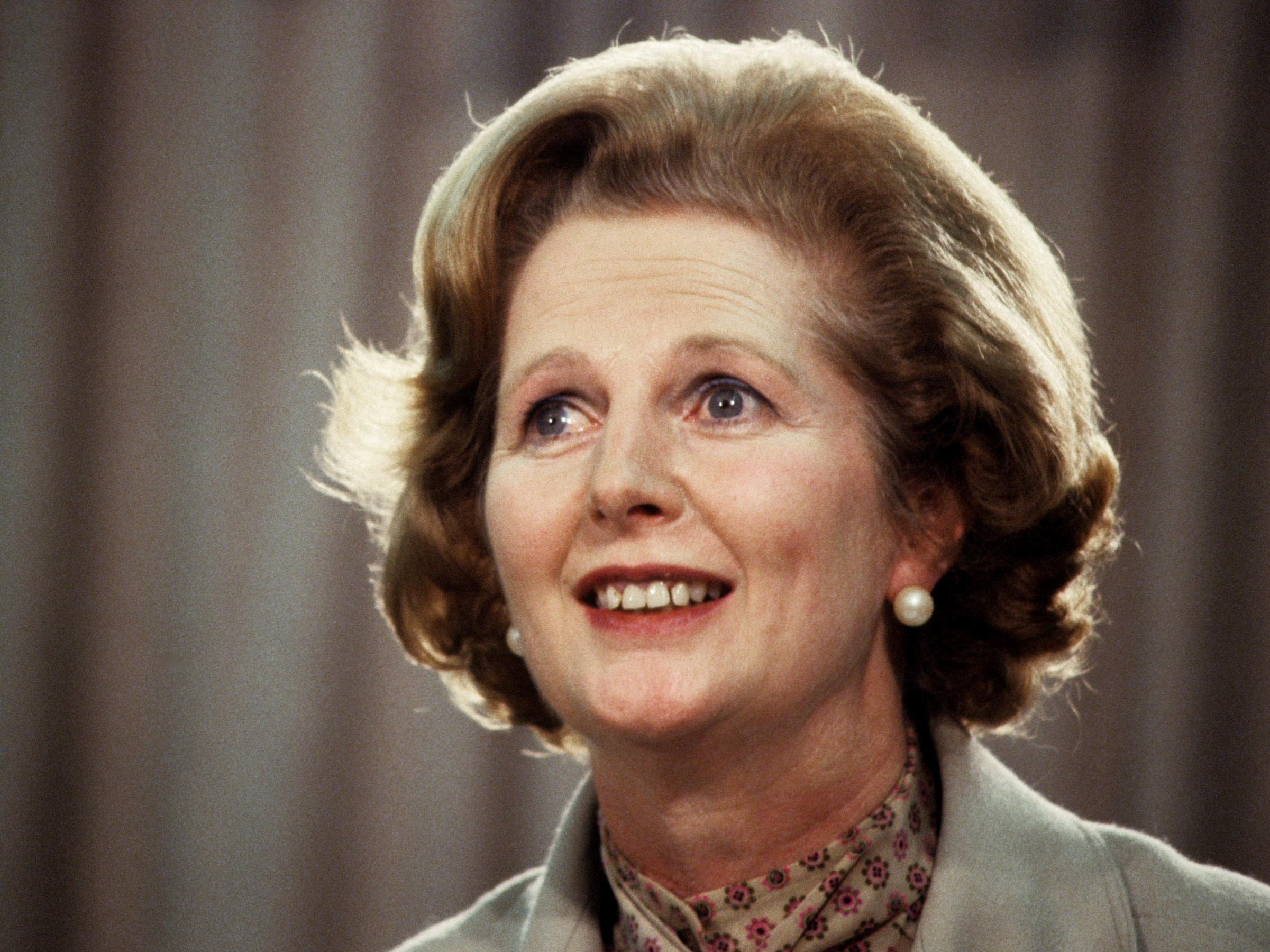Margaret Thatcher could be on new £50 note after being deemed a 'scientist' by Bank of England
Former prime minister on 800-strong shortlist due to chemistry degree

Your support helps us to tell the story
From reproductive rights to climate change to Big Tech, The Independent is on the ground when the story is developing. Whether it's investigating the financials of Elon Musk's pro-Trump PAC or producing our latest documentary, 'The A Word', which shines a light on the American women fighting for reproductive rights, we know how important it is to parse out the facts from the messaging.
At such a critical moment in US history, we need reporters on the ground. Your donation allows us to keep sending journalists to speak to both sides of the story.
The Independent is trusted by Americans across the entire political spectrum. And unlike many other quality news outlets, we choose not to lock Americans out of our reporting and analysis with paywalls. We believe quality journalism should be available to everyone, paid for by those who can afford it.
Your support makes all the difference.The famous face chosen to grace the new £50 note could be Margaret Thatcher, after the former prime minister was accepted by the Bank of England as a “scientist”.
The Bank’s governor, Mark Carney, announced earlier this month the new banknote would highlight the UK’s contribution to science.
Of the total of 174,112 nominations, the Bank said it had whittled that down to an 800-strong shortlist, which included the late Baroness Thatcher.
Before she became a Conservative MP in 1959, Britain’s first female prime minister worked briefly as a chemist for a food company, J Lyons and Co.
It is for this reason the Bank of England has accepted her nomination; the only criteria to join the shortlist were to be real, dead and have contributed to British science in some way.
Announcing the focus on scientists, Mr Carney said: “There is a wealth of individuals whose work has shaped how we think about the world and who continue to inspire people today”.
A spokesperson for the Bank, said: “She had a degree in chemistry, [and] went on to work as a research chemist – famously working on the research team which helped invent soft scoop ice cream.”
However, this is actually a common myth. While Baroness Thatcher did work on emulsifiers in ice cream, among other projects, the frozen dessert was actually invented in America, more than a decade before J Lyons and Co partnered with the US firm Mister Softee to introduce it to Britain.
The committee which will actually decide the person to feature on the £50 note has yet to consider the shortlist.
A series of better-known scientists, including physicist Stephen Hawking, telephone pioneer Alexander Graham Bell and the discoverer of penicillin Alexander Fleming, are also on the list.
Bookmakers have Mr Hawking as the favourite to end up on the banknote. Early computer scientists Ada Lovelace and Alan Turing, and the electromagnetism trailblazer Michael Faraday are also among those thought to be leading the race.
Among those who will make the final decision are space scientist and TV presenter Maggie Aderin-Pocock, physicist and author Simon Singh, and Simon Schaffer, former editor of The British Journal for the History of Science.
However unlikely she is to become the face of the £50 note, Baroness Thatcher’s inclusion is a boost to a campaign initiated by right-wing Westminster blog Guido Fawkes.
The website has been lobbying for the former prime minister to be chosen, arguing that it would promote gender equality.
A petition set up by Guido Fawkes has so far been signed by more than 18,000 people.
The winner of the contest to replace steam engine inventers James Watt and Matthew Boulton on the £50 note will be announced next year.
Nominations for candidates can still be made until 14 December through the Bank of England website.
Join our commenting forum
Join thought-provoking conversations, follow other Independent readers and see their replies
Comments